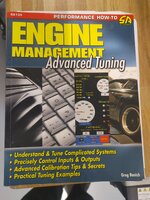The real question is how many fuel-related issues have you seen? Not from dirt, water, old gas, etc., actually the new, fresh gasoline fuel directly was the problem.
In modern cars, there are really very few damaged engines in the real world due to the actual octane rating of the gasoline. A lot of the time the issues that are "gas" related come from indirect sources. Poor storage tanks are a big one. Old gas that is varnishing causes a lot of the issues you hear about when someone says the "gas" causes an engine problem.
Also do you really think local dealers are draining tanks, sending it off to the lab to check the additive package and octane rating of fuel before a simple warranty claim? Sure a knock sensor could show a reading but there are a lot of reasons that can occur that are not the fault of the owner.
I personally think this 87 or 93 issue is overblown. The real question is did you test the fuel coming from the pump of your local station to KNOW it is exactly 93 octane? Who knows what is going on underground at the pump, especially when traveling and getting fuel at random places. If you didn't check it every time, did you void your warranty?
In modern cars, there are really very few damaged engines in the real world due to the actual octane rating of the gasoline. A lot of the time the issues that are "gas" related come from indirect sources. Poor storage tanks are a big one. Old gas that is varnishing causes a lot of the issues you hear about when someone says the "gas" causes an engine problem.
Also do you really think local dealers are draining tanks, sending it off to the lab to check the additive package and octane rating of fuel before a simple warranty claim? Sure a knock sensor could show a reading but there are a lot of reasons that can occur that are not the fault of the owner.
I personally think this 87 or 93 issue is overblown. The real question is did you test the fuel coming from the pump of your local station to KNOW it is exactly 93 octane? Who knows what is going on underground at the pump, especially when traveling and getting fuel at random places. If you didn't check it every time, did you void your warranty?



